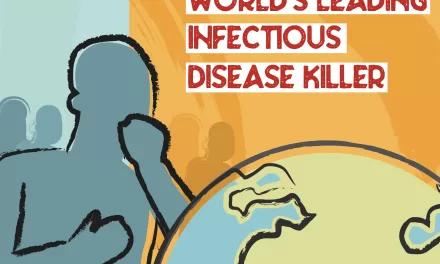Madrid, Spain – The Obesity Working Group of the Spanish Society of Endocrinology and Nutrition (GOSEEN) has renewed its call for obesity to be formally recognized as a chronic disease, stressing that only through such recognition can more effective measures be implemented to control and treat the condition.
“Only by recognizing obesity as a chronic disease will it be possible to implement more measures to help control it,” said Dr. Irene Bretón, assistant physician in the Endocrinology and Nutrition Service at Gregorio Marañón General University Hospital in Madrid and president of GOSEEN.
Understanding Obesity Beyond Lifestyle Choices
Obesity is often perceived as a result of poor lifestyle choices, but according to Dr. Bretón, genetics play a significant role, accounting for 40% to 70% of the risk of developing obesity. This genetic predisposition typically involves multiple genes that influence metabolism and fat storage.
GOSEEN has reported that obesity is linked to more than 200 diseases, including cardiovascular diseases, diabetes, and certain cancers. Additionally, it contributes to mobility issues, joint pain, fatigue, and poor sleep, significantly impacting the quality of life of affected individuals.
Speaking with Univadis Spain, a Medscape Network platform, Dr. Bretón explained that obesity results from disruptions in the body’s mechanisms that regulate energy balance, leading to excessive fat accumulation. “Obesity is not just about weight. The body regulates adipose tissue, and when this regulation fails, excess fat is maintained, triggering an inflammatory response,” she emphasized.
Rethinking Diagnosis and Treatment
A recent article in The Lancet Diabetes & Endocrinology, endorsed by over 76 medical organizations, called for moving beyond body mass index (BMI) as the primary diagnostic tool for obesity. The article defines clinical obesity as a disease caused by excess adiposity that impairs organ and tissue function and recommends a more comprehensive diagnostic approach. However, BMI remains a sufficient criterion when it exceeds 40.
In July 2024, the European Association for the Study of Obesity proposed a new diagnostic framework in Nature Medicine, advocating for body composition analysis and practical measures such as the waist-to-height ratio as key indicators of cardiovascular and metabolic risks.
Advancements in Obesity Treatment
New pharmacological treatments have shown promising results in obesity management. According to Dr. Bretón, weight loss medications approved under rigorous European regulations are not only effective in promoting weight reduction but also help manage obesity-related complications. However, accessibility remains a concern, as the Spanish public health system does not always fund these treatments.
Bariatric surgery remains an option for severe obesity cases when medication is insufficient. While the procedure is covered by Spain’s national health system, Dr. Bretón highlighted that waiting lists and regional disparities create access inequities.
A Multidisciplinary Approach
Obesity management requires a collaborative effort among healthcare professionals. Dr. Bretón emphasized that treating obesity should involve a structured, multidisciplinary team comprising endocrinologists, primary care physicians, cardiologists, pulmonologists, bariatric surgeons, dieticians, and psychologists, among others. Additionally, she stressed the role of families and educational institutions in fostering healthier lifestyles from an early age.
Conclusion
Experts argue that acknowledging obesity as a chronic disease will lead to improved policies, better access to treatment, and a shift away from stigma and misconceptions surrounding the condition. With growing medical consensus on the complexity of obesity, Spain may soon need to reconsider its approach to tackling this pressing public health issue.
Disclaimer: This article is for informational purposes only and does not constitute medical advice. Individuals should consult healthcare professionals for diagnosis and treatment options related to obesity and associated health conditions.












